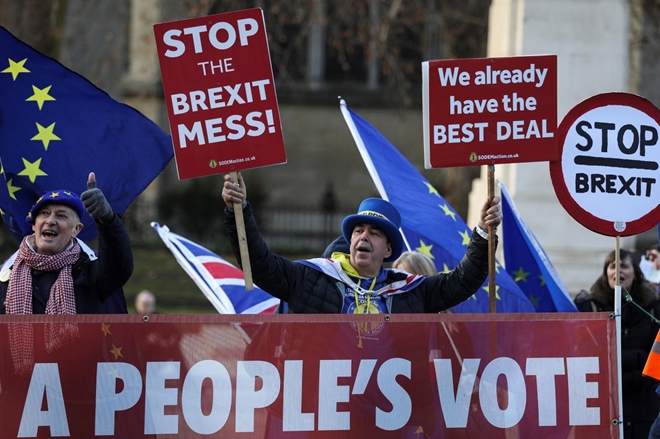Brits to vote again? Brexit delay creates headache for Europe
Britain is scheduled to quit the European Union on March 29, two months before citizens of the other 27 EU states elect a new European Parliament.
- White House calls Democrats' plan to end shutdown 'non-starter'
- Trump, Democrats spar over shutdown with no deal in sight
- US House Lawmakers Leave Capitol, Guaranteeing Partial Government Shutdown
But with Prime Minister Theresa May looking unlikely to win British parliamentary backing next week for her EU withdrawal treaty, speculation is mounting that London will try to delay departure, creating a legal headache for Brussels.
 |
| Brits to vote again? Brexit delay creates headache for Europe. |
“We are looking into what this might mean, but there is very little that is clear, legally, and it depends on what Britain decides to do,” one senior EU official said, describing growing discussion of the issue around Brussels and in EU member states.
Key complications are:
- how long an extension Britain may seek to its two-year exit deadline under Article 50 of the EU treaty — notably whether it leaves before or after the current EU legislature lapses on July 1
- whether an extension might end up cancelling Brexit altogether
- whether a need for Britons to vote for new EU representatives could be delayed beyond May
- whether the new EU chamber will need to ratify the Brexit terms.
“It’s being discussed informally. There’s not been any formal proposal and indeed a proposal would have to be kicked off by the UK government, at some juncture,” said Richard Corbett, a leading British Labour Member of the European Parliament (MEP).
A European affairs minister from an EU government said the prospect of Britons having to hold a vote in late May to elect MEPs to a chamber they were still about to leave would be “mad politically, but legally we might have no other option”.
A second EU official said Britain had told the EU it had budgeted for an election that, without Brexit, would have been scheduled for Thursday, May 23.
Asked about such plans, Britain’s Electoral Commission said it had no plan for an election but it was “experienced in delivering well run, unscheduled elections and can draw upon this expertise as required”.

